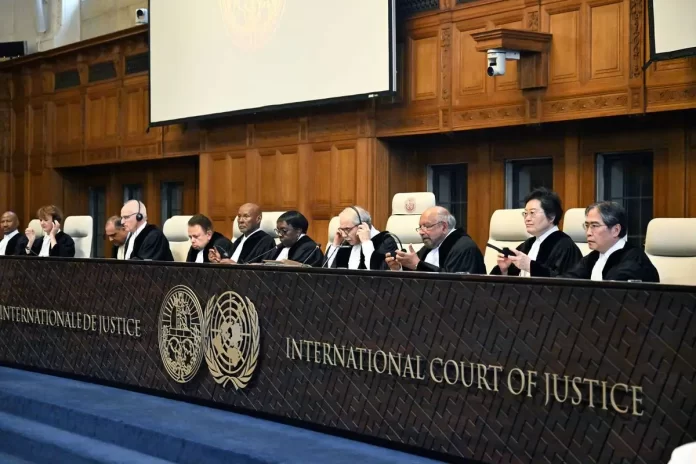1 July 2024: Spain has formally submitted a Declaration of Intervention to the International Court of Justice (ICJ) in the ongoing case brought by South Africa against Israel concerning the application of the Genocide Convention in the Gaza Strip, according to a report by Anadolu Agency.
The Spanish Foreign Ministry emphasized that this intervention reflects Spain’s commitment as a State party to the Genocide Convention and its dedication to upholding international law. “This intervention is motivated by our responsibility as a State party to the Genocide Convention and our firm commitment to international law,” the ministry stated.
Spain’s action aligns it with other nations such as Colombia, Mexico, and Palestine, with several others like Ireland, Belgium, and Chile expected to join. This collective move underscores these countries’ dedication to supporting the ICJ’s role in maintaining a rules-based international order.
The Spanish Foreign Ministry highlighted the country’s commitment to contributing to peace efforts in Gaza and the broader Middle East.
“We seek to contribute to bringing peace back to Gaza and the Middle East,” the ministry added.
The ministry also stressed the necessity of a two-state solution to ensure lasting peace and stability for both Palestinians and Israelis. Additionally, it raised concerns about the humanitarian crisis in Gaza, including restricted access to aid and the destruction of infrastructure.
Spain called on the ICJ to address the obligation to prevent genocide and ensure compliance with the Court’s binding precautionary measures. The Spanish government also pledged to abide by the ICJ’s ruling, demonstrating its support for international judicial decisions and its dedication to fostering global peace and stability.
The backdrop to this intervention is the ongoing conflict between Israel and Hamas, which began with an attack by Hamas on October 7, 2023. Since then, more than 37,700 Palestinians have been killed in Gaza, most of them women and children, with over 86,500 injured, according to local health authorities. The conflict has resulted in vast tracts of Gaza lying in ruins, exacerbated by a crippling blockade that restricts access to food, clean water, and medicine.
In a related development, Spain’s Prime Minister emphasized the urgency for international support of the ICJ in implementing measures against Israel. This call comes amidst Israel’s international condemnation for flouting a UN Security Council resolution demanding an immediate ceasefire.
The ongoing conflict and humanitarian crisis in Gaza remain a focal point of international concern, with multiple nations rallying to support judicial measures aimed at preventing further atrocities and ensuring accountability.
Meanwhile, the Moroccan authorities have allowed an Israeli warship to dock at the port of Tangier to replenish fuel and food supplies, following the Spanish government’s refusal to permit the vessel to use its ports. The decision by Rabat has drawn condemnation from the National Action Group for Palestine in Morocco.
“This was a violation of national sovereignty,” the group declared, calling for an urgent investigation to determine accountability and consequences for those responsible. They added that the decision showed “disrespect and insulted the feelings of Moroccans; [it was] a flagrant violation of the constitution, and a blatant attack on Moroccan culture and heritage.”
The group’s statement coincided with ongoing efforts by the Yemeni people and army to prevent Zionist ships from passing through Bab Al-Mandab and the Red Sea to mitigate the impact of Zionist massacres. It also followed Spain’s prevention of genocide-related ships from anchoring in its ports, adhering to international conventions and court decisions.
An Israeli news site reported that the INS Komemiyut arrived in Israel from the US after stopping in Morocco for supplies. This incident reportedly deepens defense cooperation between Israel and Morocco.
Protests and marches took place in several Moroccan cities on Monday in solidarity with Gaza, with participants denouncing the Israeli ship’s use of Tangier’s port. Meanwhile, diplomatic sources indicated that Spain’s Ministry of Foreign Affairs will continue to refuse permission for any ship carrying weapons to Israel to stop in Spanish territory.
This development highlights the complex geopolitical dynamics in the region, as countries navigate their foreign policy and national interests amidst the ongoing conflict and humanitarian crisis in Gaza.




